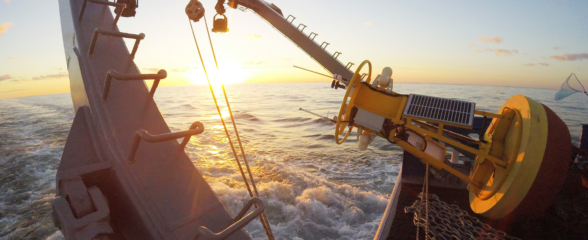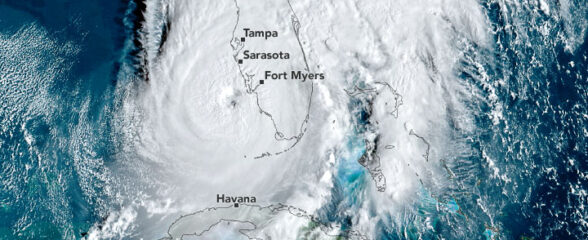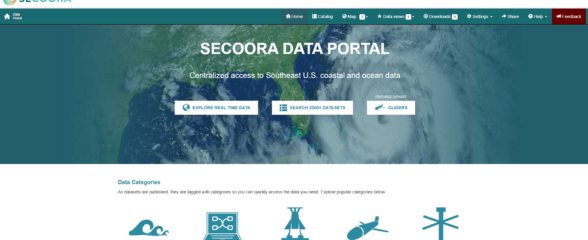SECOORA is proud to announce the winner of our Education and Outreach request for proposals: Nina Sassano from the University of Georgia Marine Extension and Georgia Sea Grant. Her project, Understanding Coastal Resilience through Virtual Exploration, will develop a series of learning modules that use Virtual Reality technology to teach Georgia middle school students how the quality, biodiversity, and overall health of wetland habitats connect to coastal resiliency. The modules will be implemented at Title I schools to expose students to exciting opportunities in STEM education.
Students will use Virtual Reality headsets to “visit” coastal wetlands, where they will conduct biological and visual site assessments. By giving students the opportunity to use real data collected by SECOORA partners and act as virtual field scientists, the curriculum allows students to engage in work conducted by STEM professionals. Lessons will teach the environmental value of wetlands and increase science education for underrepresented student groups through experiential learning.
“This project is particularly exciting to me because it is giving students who may not normally have the means to travel for a field trip the opportunity to explore the coast of Georgia through virtual reality. Studies have shown that even a single exposure to scientific topics through experiential learning can lead to a long-term appreciation for STEM-related fields and promote greater respect for the natural environment. Allowing students to explore the coast through virtual reality right from their classroom removes the financial barrier that many Title 1 schools face in taking in-person field trips. It’s our hope that, through these lessons, students will be able to critically think about coastal ecosystems, resiliency, the scientific process, and learn the informed decision-making process that helps protect vulnerable communities from storm surge and natural disasters.”
Nina Sassano – University of Georgia Marine Extension and Georgia Sea Grant.
All products will be provided to SECOORA and made available on a curriculum webpage to ensure the resources are widely available to schools throughout the southeast. Below is a summary of the lessons:
Classroom Lesson Overview:
- Lesson 1: Wetland Tour
- Students take a “wetland tour” with an educator from the UGA Marine Extension and Georgia Sea Grant to learn basic ecological principles that drive the forces of a coastal wetland and how those relate to coastal resiliency.
- Lesson 2: Scientific Data
- Students are introduced to the “who, what, when, where, and why” of scientific data collection through hands-on exercises connected to the monitoring data of regional partners.
- Lesson 3: Data Collection
- Students perform rudimentary analyses of real-life data collected in long-term monitoring programs.
- Lesson 4: Site Visit
- Students will work in teams to “visit” Georgia wetlands through virtual reality, conducting visual and biological surveys and discussions using instructions and datasheets.
- Lesson 5: Case Study
- Students will be presented with a case study to work together to solve using real-world data and local scenarios to enhance their connection to the coast.
If you have any questions, please email communications@secooraorgpact.wpengine.com.
Related news

Funding Cuts to NOAA IOOS Will Hurt the Southeast
Proposed federal funding cuts would eliminate the IOOS Regional Observations budget for next year. Contrary to the budget Congress has already approved for this year, the Executive Branch wants these proposed cuts to go into effect in 2025.

SECOORA Webinar on the Rapid Intensification of Hurricane Ian: Warm Subsurface Water on the Wide Continental Shelf
Join us Thursday, April 24th at 12 PM ET for the April installment of the SECOORA Coastal Observing in Your Community Webinar Series! This month, we will hear from Dr. Yonggang Liu from the University of South Florida. He will discuss his research on the rapid intensification of Hurricane Ian in relation to anomalously warm subsurface water on the wide...

Webinar: SECOORA Data Portal Demo
Join us on Thursday, February 20, 2025 at 1:00 PM ET to learn more about the SECOORA Data Portal and how to navigate it. Axiom Data Science will be providing an overview of the portal, including how to search the Catalog and make a custom data view.
